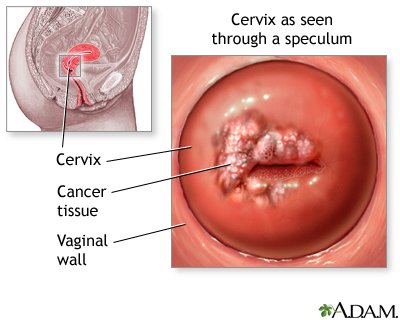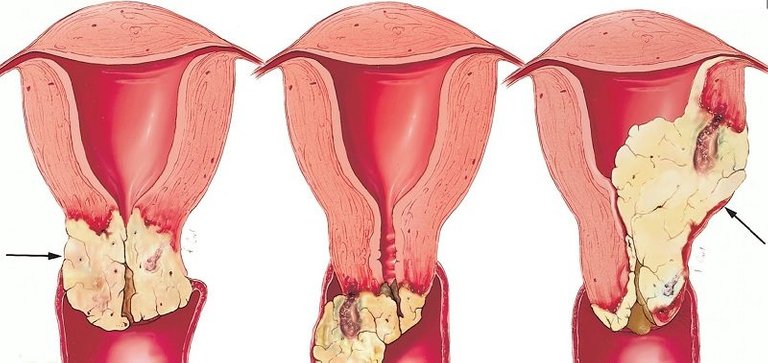It is a malignant neoplasm of the cervice uterine or cervical area. One of the most common syptoms is abnormal vagina bleeding but in some cases there may be no obvious syptoms until the cancer is in its advanced stage.
Treatment consist of surgery in earlier stage and chemotherapy in advanced stage.
SYPTOMS
Earlier stage of cervical cancers usually don't cause symptoms. When the cancer grows larger,cwomen may notice one or more of these symptoms:
- Abnormal vaginal bleeding
- Bleeding tgat occurs between regular menstrual period
- Bleeding after sexual intercourse
- Mentrual period that last longer and are heavier than before
- Bleeding after going through menopause
- Increase in vaginal discharges, pelvic pain and pain during sex.
- Infection and other health related issues may also cause these symptoms. A woman seeing these symptoms should see a Doctor.
CAUSES
Not all cases of vaginal cancer are known but HPV (Human Papilloma Virus) is also known as the common code of the sexual transmitted infection. It is very common and affect roughly 80% of sexually active people wether they have symptoms or not. Not all types of HPV cause cervical cancer. Some of them cause genital warts , but other types may not cause any symptoms.
Most adults have been infected with HPV at some time. An infection may go away on its own. But sometimes it can cause genital warts or lead to cervical cancer . That's why it's important for women to have regular Pap tests. A Pap test can find changes in cervical cells before they turn into cancer.
TREATMENT
Treatment options include
- Surgery
- Chemotheraphy
- Radiotheraphy
** The choice of treatment depend mainly on the size of tumor and wether the cancer has soread. It also depend on wether the person affected wants to get pregnant someday. If you have a hysterectomy , you won't be able to have children. But a hysterectomy isn't always needed, especially when cancer is found very early.
Finding out that you have cancer can change your life.
PREVENTION
- Getting an HPV vaccine
- Testing for HPV
- Not smoking
- Condom use

